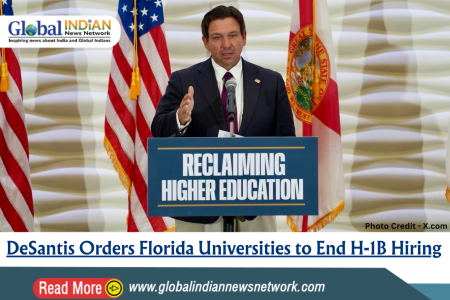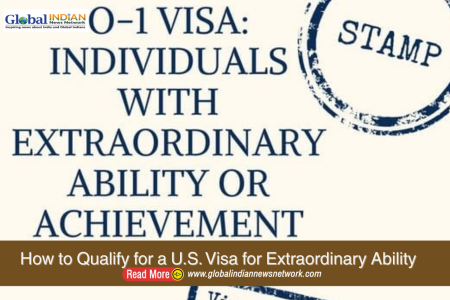
While H-1B season is right around the corner, I still get asked about other visas such as the L-1. “What is an L-1 visa”? “Am I a good fit”? “Are they hard to get”? “Who is eligible”?
Let’s pretend for a moment that Bill Gates was Canadian from Vancouver instead of being American from Seattle. Let’s also use the story that Gates co-founded Macrohard in Canada instead of the U.S. Years later, Microhard eventually would want to expand into the U.S. market and would need to open up a U.S. office … for example in San Jose. If Macrohard wanted to transfer Gates, their Executive V.P., to their new Silicon Valley office, how would they be able to do so? An L-1 Executive Transfer would be a great option for Macrohard to bring the talents of Mr. Gates to the Golden Gate area.
As long as Mr. Gates worked in an executive or managerial capacity for Macrohard at their Canadian headquarters for at least one year, Macrohard could sponsor him for an L-1A visa to start a similar position at their new (or existing) U.S. office. Macrohard’s experienced U.S. Immigration Attorney also told them that they could also sponsor Gates for a U.S. green card if they so desired. If Macrohard’s U.S. subsidiary feels it is in their best interests as a company to sponsor Mr. Gates for a U.S. green card, this would be the best route. An L-1A visa holder can apply to adjust their status to a lawful permanent resident by means of an EB-1C petition.
If you are from India or China, pay close attention. As many of you know, the visa bulletin and immigrant visa backlog are quite long for most green cards for those born in India or China. Applying for an employment-based green card in the 2nd employment preference category (EB-2) or 3rd employment-based preference category (EB-3) can take many many years for those from countries with long visa backlogs. Is there good news? A green card obtained in the first employment-based category (EB-1) has a much shorter green card wait time. While most will not qualify for this category as an EB-1C can be obtained once you are on an L-1 visa.
Advantages of an L-1 Visa
- Dual-Intent. Like the H-1B, the L-1 allows the employer to sponsor them for a green card while they are working in L-1 status.
- No quota/cap, unlike an H-1B. There is no annual limit to the number of L-1 visas that can be issued.
- No prevailing wage requirements. Unlike the H-1B, the L-1 visa does not require a labor condition application or required the US company to pay the employee/foreign worker a prevailing wage. Although the employee still has to be paid a reasonable salary to be considered an executive/manager or a professional with specialized knowledge.
- No educational attainment requirement. Unlike an H-1B visa that requires at least a bachelor’s degree (or equivalent), the L-1 visa doesn’t have an education requirement. However, the applicant has to possess the required skills and experience to serve as a realistic manager or executive.
- Eligible for Premium Processing.
- Family Benefits. Your spouse and unmarried children under the age of 21 may travel with you to the United States if you are approved for an L-1 visa. Spouses of those granted an L-1 visa are also work eligible.
Disadvantages of an L-1 visa
- Not indefinitely renewable. One of the main limitations of L-1 visas is this. The L-1A permits employees to work for a maximum of seven years however this period cannot be extended.
- Your visa is tied to your employment. Since the L-1 status is dependent on employment, it expires the moment your employment does. If you lose your job (or your company goes under) you will lose your visa.
- Limit on types of companies. While you can work for any U.S. employer with other visas like the H-1B, the organization that sponsors you for an L-1 visa must be an international corporation that either already has or plans to open a branch, subsidiary, or office in the U.S.
The L-1 visa is a viable immigration solution for those in the corporate or business world whose foreign company will be transferring their job to a U.S. office. L-1s allow the employee and their family to work and reside in the U.S. while performing their executive or managerial role. Is the L-1 right for you or your company? Consult an experienced U.S. Immigration Attorney to find out if you and your company are both eligible for an L-1. You may still be unsure if the L-1 visa is the best option for your situation despite knowing the L1A and L1B visa criteria and all the benefits and drawbacks it offers in comparison to other work visas. You can determine how to best proceed with the aid of an experienced immigration attorney.
This article does not constitute a solicitation or provision of legal advice and does not establish an attorney-client relationship. The answers provided should not be used as a substitute for obtaining legal advice from an attorney licensed or authorized to practice in your jurisdiction. You should always consult a suitably qualified attorney regarding any specific legal problem or matter on time.
U.S. Immigration Attorney Seth Finberg is a 2005 graduate of the University of Georgia School of Law. Seth is a member of the Georgia Bar, the American Immigration Lawyers Association (AILA), and serves on the Business and Investment Committee for the South Florida chapter of AILA. Mr. Finberg is the owner and founder of South Florida based Finberg Firm PLLC and he represents clients nationwide and internationally in business, employment, and investment immigration. He can be reached by phone at (954)-843-3568 / (954) 249-6603 or by email at seth@finbergfirm.com or www.finbergfirm.com.
 Attorney Seth Finberg is a 2005 graduate of the University of Georgia School of Law and is a member of the Georgia Bar and the American Immigration Lawyers Association (AILA). He is the owner and founder of Finberg Firm PLLC (located in Ft. Lauderdale, FL) and he represents clients nationwide and internationally in the areas of business, employment, and family-based immigration. Mr. Finberg is an active member of the Miami Asylum Office Committee for AILA South and Central Florida and he serves as a legal captain in pro bono clinics for Temporary Protected Status. Seth has been recognized for his outstanding pro bono service by the South Florida chapter of the American Immigration Lawyers Association, winning their 2021 Pro Bono Champion award. He can be reached by phone at (954)-843-3568 / (954) 249-6603 or by email at seth@finbergfirm.com or at www.finbergfirm.com .
Attorney Seth Finberg is a 2005 graduate of the University of Georgia School of Law and is a member of the Georgia Bar and the American Immigration Lawyers Association (AILA). He is the owner and founder of Finberg Firm PLLC (located in Ft. Lauderdale, FL) and he represents clients nationwide and internationally in the areas of business, employment, and family-based immigration. Mr. Finberg is an active member of the Miami Asylum Office Committee for AILA South and Central Florida and he serves as a legal captain in pro bono clinics for Temporary Protected Status. Seth has been recognized for his outstanding pro bono service by the South Florida chapter of the American Immigration Lawyers Association, winning their 2021 Pro Bono Champion award. He can be reached by phone at (954)-843-3568 / (954) 249-6603 or by email at seth@finbergfirm.com or at www.finbergfirm.com .









